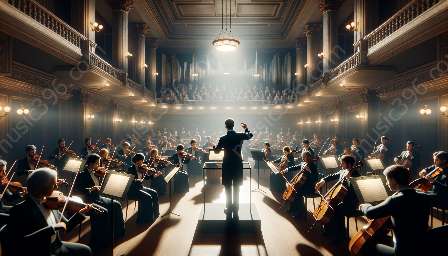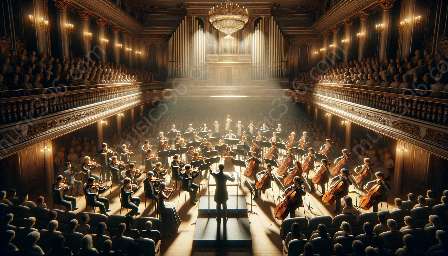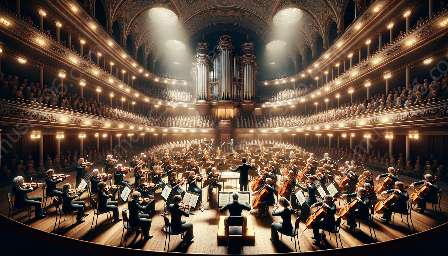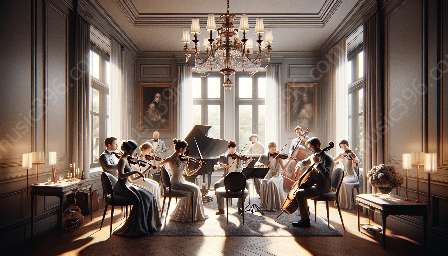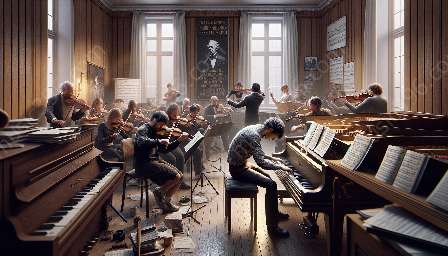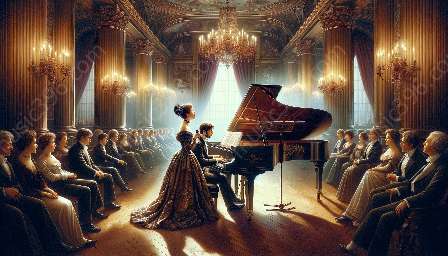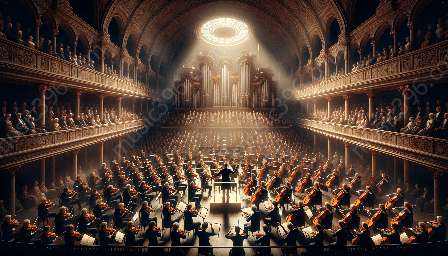Classical music composition and performance were significantly impacted by the invention and proliferation of the piano, leading to revolutionary changes in musical expression and innovation.
The Invention of the Piano
The history of classical music is closely intertwined with the evolution of musical instruments, and the invention of the piano in the early 18th century marked a pivotal moment in musical history. The piano, also known as the pianoforte, was a groundbreaking development that transformed the possibilities for musical composition and performance.
Revolutionizing Composition
The piano's unique capabilities, including its dynamic range and ability to sustain sound, inspired composers to explore new forms of expression. Composers such as Ludwig van Beethoven, Wolfgang Amadeus Mozart, and Frédéric Chopin embraced the piano as a central instrument in their compositions, leading to a surge of innovative piano music that continues to define the classical music repertoire.
Expanding Performance Styles
The proliferation of the piano altered the nature of classical music performance, as it enabled solo performances to take center stage in concert halls and salons. The piano's versatility allowed performers to showcase a wide range of musical styles and genres, from virtuosic classical compositions to popular music adaptations.
Historical Significance
The piano's impact on classical music is rooted in its historical significance as a catalyst for musical evolution. Its widespread adoption sparked a renaissance in composition and performance, shaping the development of classical music as we know it today.
Legacy and Influence
The piano's enduring legacy continues to shape classical music composition and performance, inspiring new generations of composers and performers to push the boundaries of musical expression. Its influence on the evolution of classical music remains profound, cementing its place as one of the most transformative and iconic instruments in the history of music.












